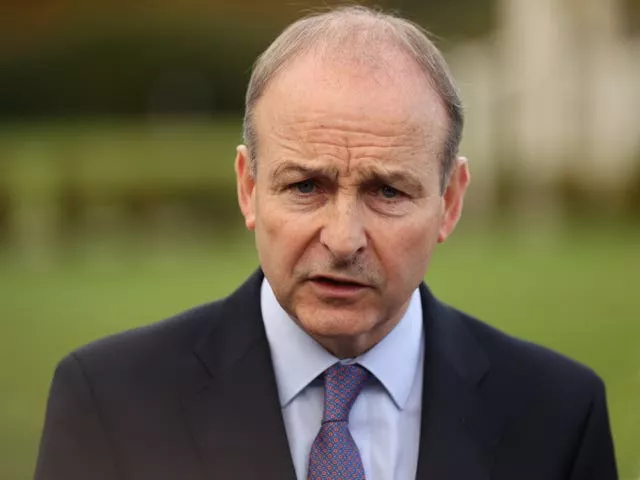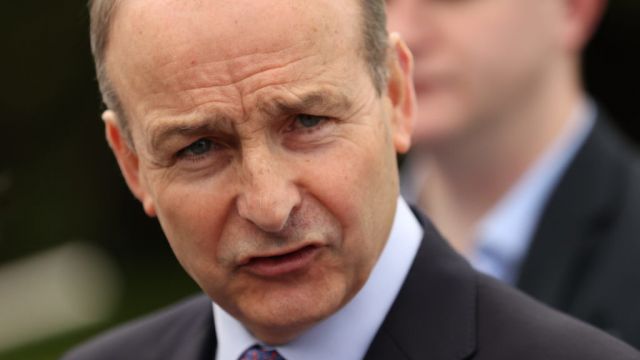Taoiseach Micheál Martin has said there cannot be direct rule from Westminster in the event of power-sharing not being restored at Stormont this week.
He said if the institutions are not reformed in time, the British-Irish Intergovernmental Conference (BIIGC) “kicks in” and the Irish Government will have a “consultative” role in the running of Northern Ireland.
He also reiterated his plea for the DUP to facilitate the restoration of the Northern Ireland institutions before Friday’s deadline.
Mr Martin made the remarks in the Dáil in response to Sinn Féin leader Mary Lou McDonald as the deadline for the restoration of powersharing in Northern Ireland looms.
Mr Martin said in the event of no restoration of the institutions “the British-Irish Intergovernmental Conference kicks in and the Good Friday Agreement provides for meetings of that in respect of close consultation with the Irish government in terms of matters pertaining to Northern Ireland”.
The BIIGC was set up under the 1998 Good Friday peace agreement. Chaired by the Irish Foreign Affairs Minister and Northern Ireland Secretary, it guarantees the Irish Government a say in non-devolved Northern Ireland issues.
A recent report by the British-Irish Parliamentary Assembly’s Sovereign Affairs Committee highlighted that, before Brexit, UK and Irish representatives met regularly at official and ministerial levels during EU proceedings.
It said formal meetings of both parties through the British-Irish Intergovernmental Conference should be “less episodic” and not only focused on crisis events.

He added: “In the event that there is a sustained period with no functioning of the Northern Ireland executive body, assembly, there cannot be a return to the direct rule arrangements of the past.
“And the Government will fully pursue its consultative role under the Good Friday Agreement, that is the position. That we will exhaust every possibility within that framework if there is a sustained period of absence of the executive or the assembly.”
The Taoiseach reiterated his plea for the DUP to engage with the other political parties in Stormont and form an executive before Friday.
“I made it clear to the DUP that they should come back into the assembly, facilitate the restoration of the assembly and the executive. It is a denial of democracy not to do so,” he said.
“I’ve been very consistent since the election that the results of the election should be vindicated. The people have voted, and the results should be reflected in the composition of the executive.”
Northern Ireland Secretary Chris Heaton-Harris reiterated his vow to call an Assembly election if a power-sharing executive is not formed at Stormont.
The UK Government assumes a legal responsibility to call an election if an executive is not in place by Friday.
Ms McDonald said unionists need to understand “wrecking” the Stormont institutions will not result in direct rule from London as she called for the DUP to engage with her party.
“Sinn Féin stands ready to form an executive for all, ready to work with others to shape a better future. It’s with this objective in mind that the assembly was set tomorrow,” she said.
“Our message to the DUP is clear: end your boycott, join with us, work with us together in an executive to tackle the cost of living, to fix the health service and to make people’s lives better.”
Ms McDonald added: “Political unionism has to understand that wrecking the institutions of government will not usher in direct rule from London.
“If the restoration of the executive in Belfast is blocked indefinitely by the DUP, the only alternative would be an arrangement of joint authority between the Irish state and the British state.
“This is in line with the position taken in 2006 by the Irish and British governments, when facing into a deadlock situation.”
She added that she hoped that the Dáil can maintain a “unified stance on the important matters that lie ahead”.







